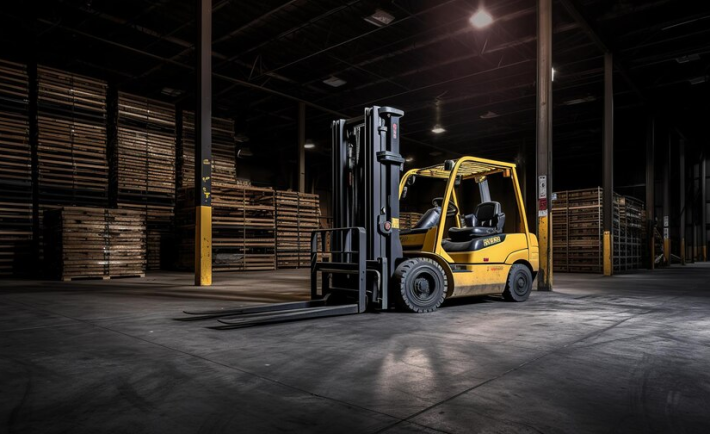
The accelerating pace of global markets means that goods, materials, and equipment have to be moved in larger quantities, faster, and more efficiently than ever. Though there’s a lot of heavy equipment involved in supply chain and warehouse management, the humble forklift remains critical in the daily operations of manufacturers, logistics businesses, and commercial enterprises alike.
Today, any organisation that has to regularly move heavy loads within a space likely has forklifts or could benefit from owning at least one. Fortunately, forklifts have become more affordable over the years, which means more businesses can now boost their operational efficiency and safety. Given the importance forklifts play in many organisations’ daily warehousing operations, however, developing a relationship with a reliable dealer is as essential as finding a forklift at a good price.
As with any key supplier, your forklift truck dealer can enable your business’s success. Let’s examine key qualities that can tip you off that a heavy equipment supplier is worth your time and money:
1. Industry Experience and Reputation
Even with the increasing global demand for heavy equipment, most regions will only have a handful of forklift dealers. This makes it fairly simple to check for the reputation of different suppliers, particularly their track record when working with customers across various industries. So, take the time to check each shortlisted dealer’s reviews and seek recommendations from other businesses within your field. This should give you an idea of how well each dealer understands your operational challenges and the likelihood that they will be able to provide optimal solutions.
2. Comprehensive Product Range
A good forklift truck dealer should offer a decently wide selection of equipment to meet your specific operational needs. Whether you require electric, diesel, or LPG forklifts, the dealer should have multiple models and technologies on hand. Having this variety is especially important if your business has diverse warehousing and logistical needs.
3. Expert Knowledge and Advice
Your dealer should be credible about all aspects of forklift trucks, from their mechanical features to operational efficiency. They should offer sound advice tailored to your business needs and not be solely focussed on selling you whichever models are best for their profits.
4. Flexible Financing Options
For most businesses, any heavy equipment purchase will make a significant dent in their bottom line. Good dealers understand this and can offer flexible financing options to ease the payment burden. Whether through leasing arrangements, instalment plans, or credit facilities, your shortlisted dealers should work with you to find a payment plan that aligns with your business’s financial situation.
5. After-Sales Support and Service
Forklifts are complex machines that are difficult for most businesses to service on their own. For that reason, your dealer must be able to provide continuous support for a reasonable time after your purchase. Quality after-sales in the form of maintenance services, spare parts supply, and warranty options help reduce the burden of keeping the forklift functioning, preventing interruptions in your operations.
6. Training and Certification
Though operating a forklift is simple and broadly similar across different models, some training is still necessary to maximise their usefulness as an investment. A good forklift truck dealer will usually offer access to operator training and certification, either through a third-party provider or an in-house programme. Regardless of whether you already have forklifts or are just building your fleet, these upskilling programmes can ensure that your team uses the equipment properly, minimising downtime and reducing the risk of accidents.
7. Customer Service Excellence
When you need technical assistance, have queries about financing, or urgently require parts for replacement, you will be glad to choose a dealer with a responsive customer service team. Prompt replies to initial inquiries and a willingness to go look deeper into your operational challenges are definite green flags for a forklift truck dealer.
8. Strong Relationships with Manufacturers
A strong relationship with heavy equipment manufacturers can help dealers enjoy quicker access to new models and priority when it comes to obtaining parts—all things that benefit your business as an end user. Overall, these relationships add another layer of reliability and service quality that isn’t necessarily guaranteed by resellers and other parties who may not have direct linkages to the makers of their products.
9. Transparency and Honesty
Lastly, good dealers are transparent about all costs involved in the sale, including the base price, additional features, and maintenance expenses. They should provide clear, itemised quotes without hidden charges, allowing you to budget accurately.
Make a Partnership, Not a Purchase
For many businesses, picking a forklift is all about finding a model that gets the job done at the lowest price possible. However, choosing based on price alone can leave the business open to various risks. As such, businesses should regard the choice of a forklift truck dealer as more akin to a partnership, since relationships with such key suppliers can directly impact efficiency and long-term success. Focussing on the above-mentioned qualities should help guarantee that you partner with a dealer that meets both your short-term equipment needs and your business’s longer-term operational goals.





